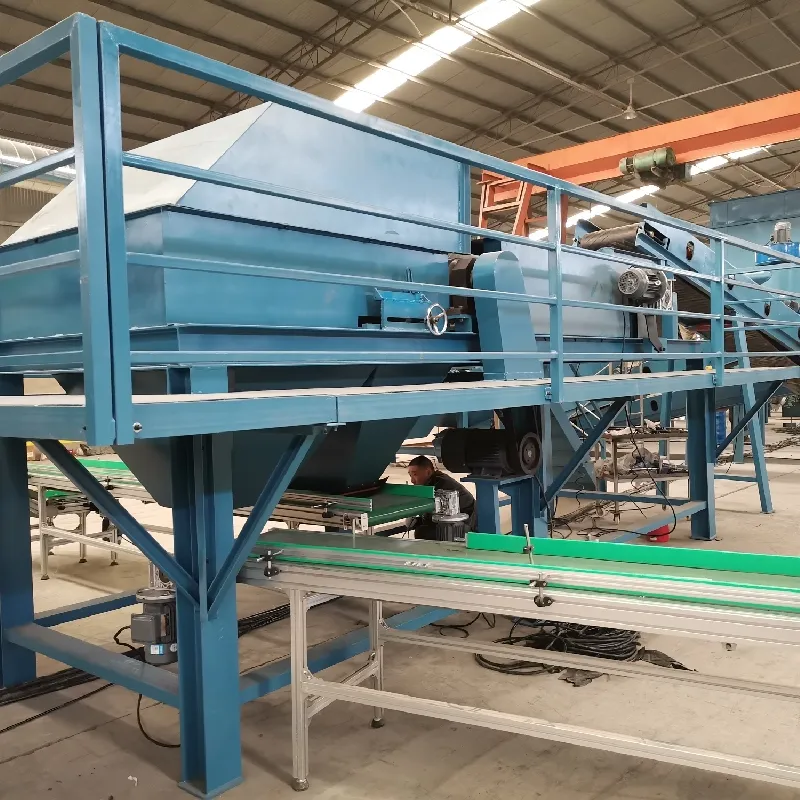

Novemba . 26, 2024 09:23 Back to list
The Importance of E-Waste Shredders in Today's Digital World
In our fast-paced digital era, electronic devices have become an integral part of our daily lives. From smartphones to laptops, these gadgets consume our time and resources, offering convenience and connectivity like never before. However, with the rapid innovation of technology comes a pressing concern electronic waste, or e-waste. The environmental impact of e-waste is profound, and the necessity for effective disposal methods has never been more critical. This is where e-waste shredders play a pivotal role.
E-waste refers to discarded electrical and electronic devices, which can include anything from outdated computers and smartphones to worn-out appliances. The United Nations estimates that the world produces over 50 million tons of e-waste annually, and only about 20% of this is recycled through proper channels. The remaining waste often ends up in landfills, posing serious environmental threats due to the hazardous materials contained within these devices.
The Importance of E-Waste Shredders in Today's Digital World
To address these issues, e-waste shredders have emerged as a crucial technology in the recycling process. These machines are designed to reduce electronic waste to smaller, manageable pieces, facilitating easier recycling and recovery of valuable materials. The shouting benefits of e-waste shredders extend beyond mere size reduction; they also enhance security and environmental protection.

One of the standout advantages of using e-waste shredders is the ability to ensure data destruction. Many electronic devices contain sensitive personal information, which can lead to identity theft if not adequately destroyed. E-waste shredders effectively dismantle these devices, rendering any recoverable data unrecoverable. This aspect is particularly significant for businesses and organizations that handle sensitive data and are mandated to comply with privacy regulations.
Moreover, e-waste shredders significantly improve the recycling process by liberating valuable materials such as metals, plastics, and glass from the electronic waste. These materials can then be recovered and reused in the production of new devices, contributing to a circular economy. The recycling of e-waste not only conserves natural resources but also reduces the energy needed to produce new materials, thereby lowering carbon emissions and mitigating the impact of climate change.
Furthermore, the scale of e-waste management presents economic opportunities. The recycling industry can create jobs and stimulate local economies, whether through the manufacturing of shredding equipment or through the operation of recycling plants. As societies increasingly adopt sustainable practices, the demand for efficient e-waste management solutions, including shredders, continues to grow.
In conclusion, e-waste shredders are an essential component of modern environmental management strategies in our digital age. They help mitigate the environmental and health risks associated with electronic waste, ensure the secure destruction of sensitive data, and promote the recovery of valuable materials. As the volume of e-waste continues to rise, investing in innovative shredding technologies is crucial for a sustainable future. Embracing these advanced solutions empowers us to protect our planet while still enjoying the technological advancements that define our era. By prioritizing responsible e-waste disposal, we contribute to a cleaner, greener future for generations to come.
Latest news
Troubleshooting Common Eddy Separator Problems
NewsJul.04,2025
The Role of Metal Recycling Plants in Circular Economy
NewsJul.04,2025
The Impact of Recycling Line Pickers on Waste Management Costs
NewsJul.04,2025
Safety Features Every Metal Shredder Should Have
NewsJul.04,2025
How Industrial Shredders Improve Waste Management Systems
NewsJul.04,2025
How Cable Granulators Contribute to Sustainable Recycling
NewsJul.04,2025